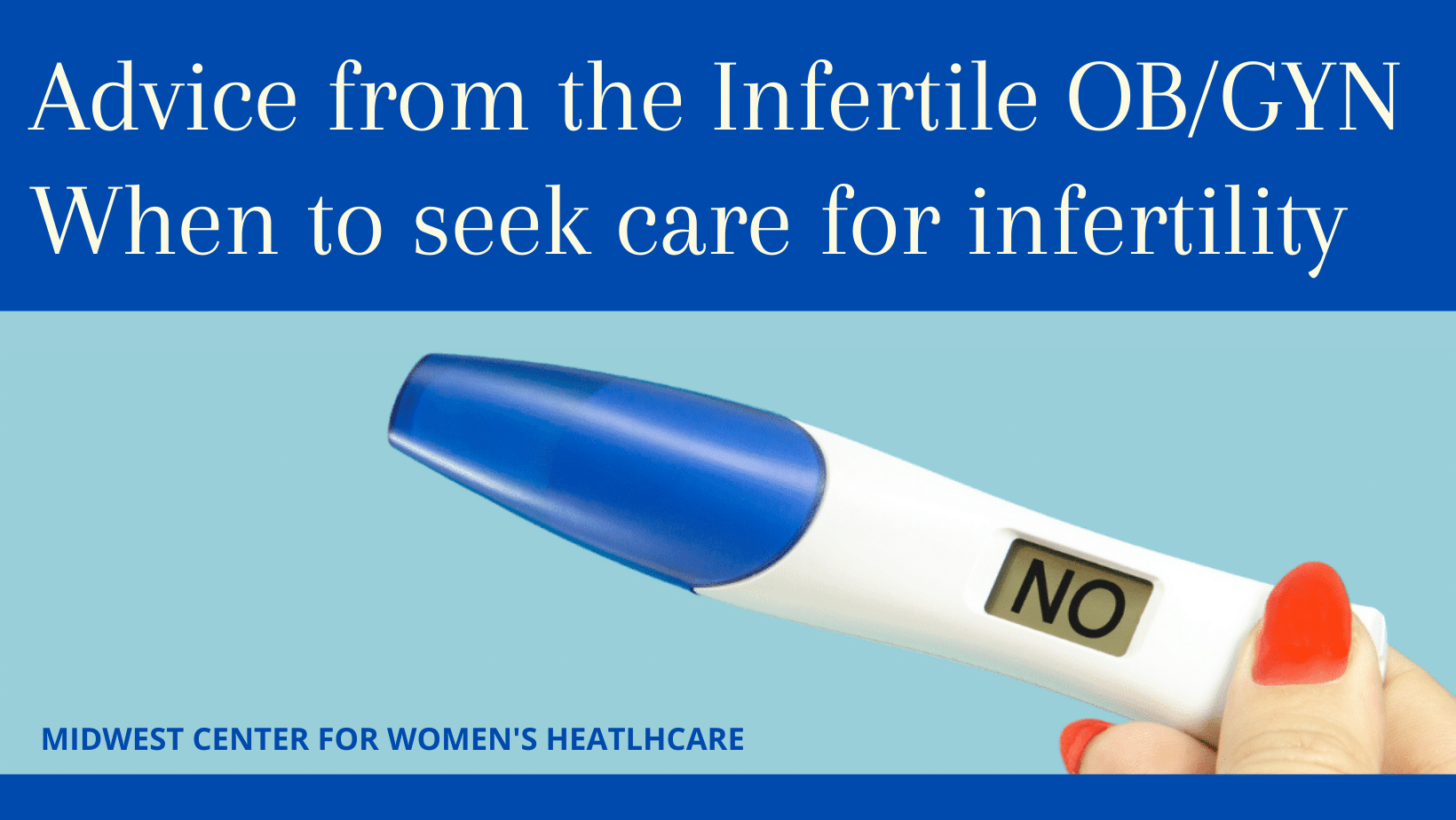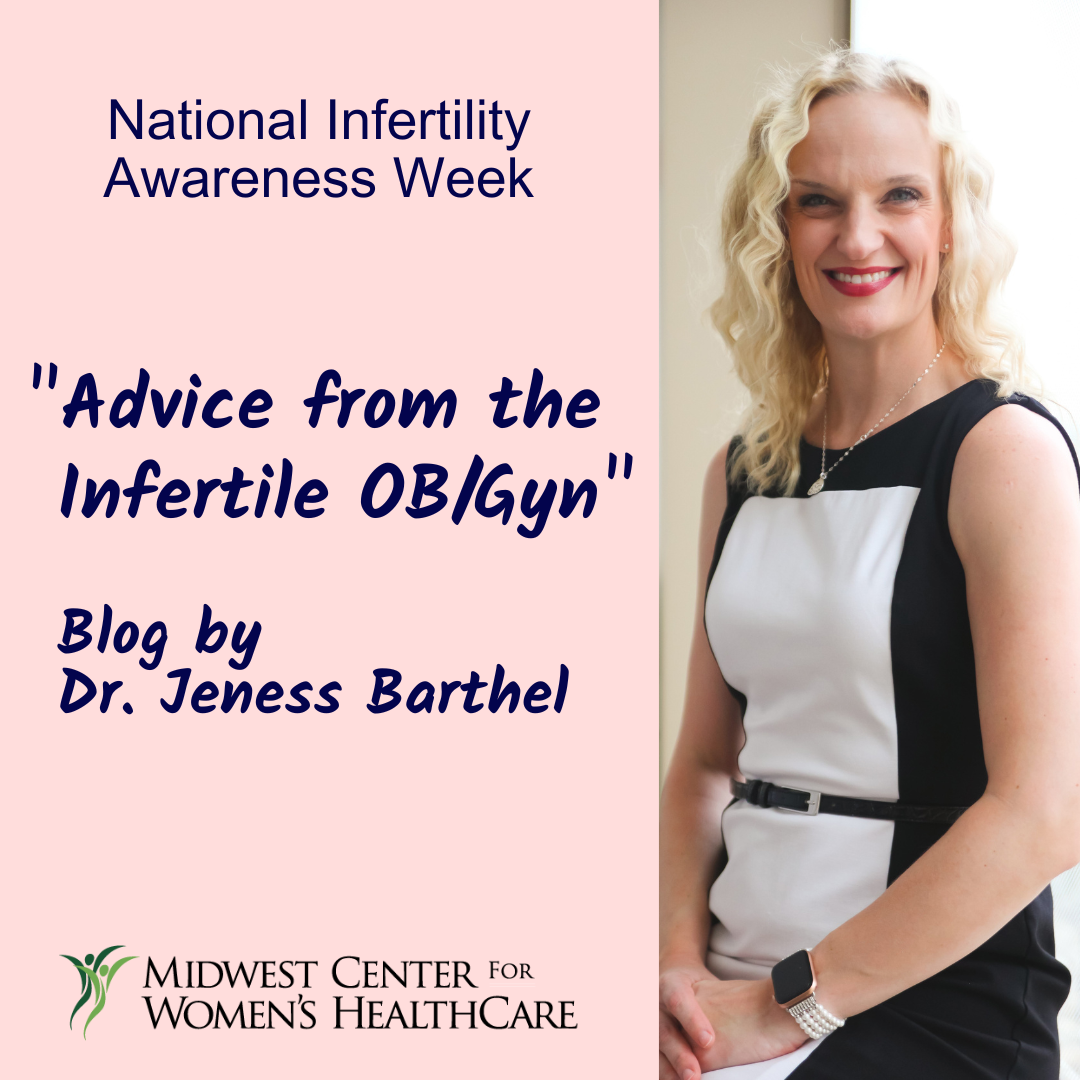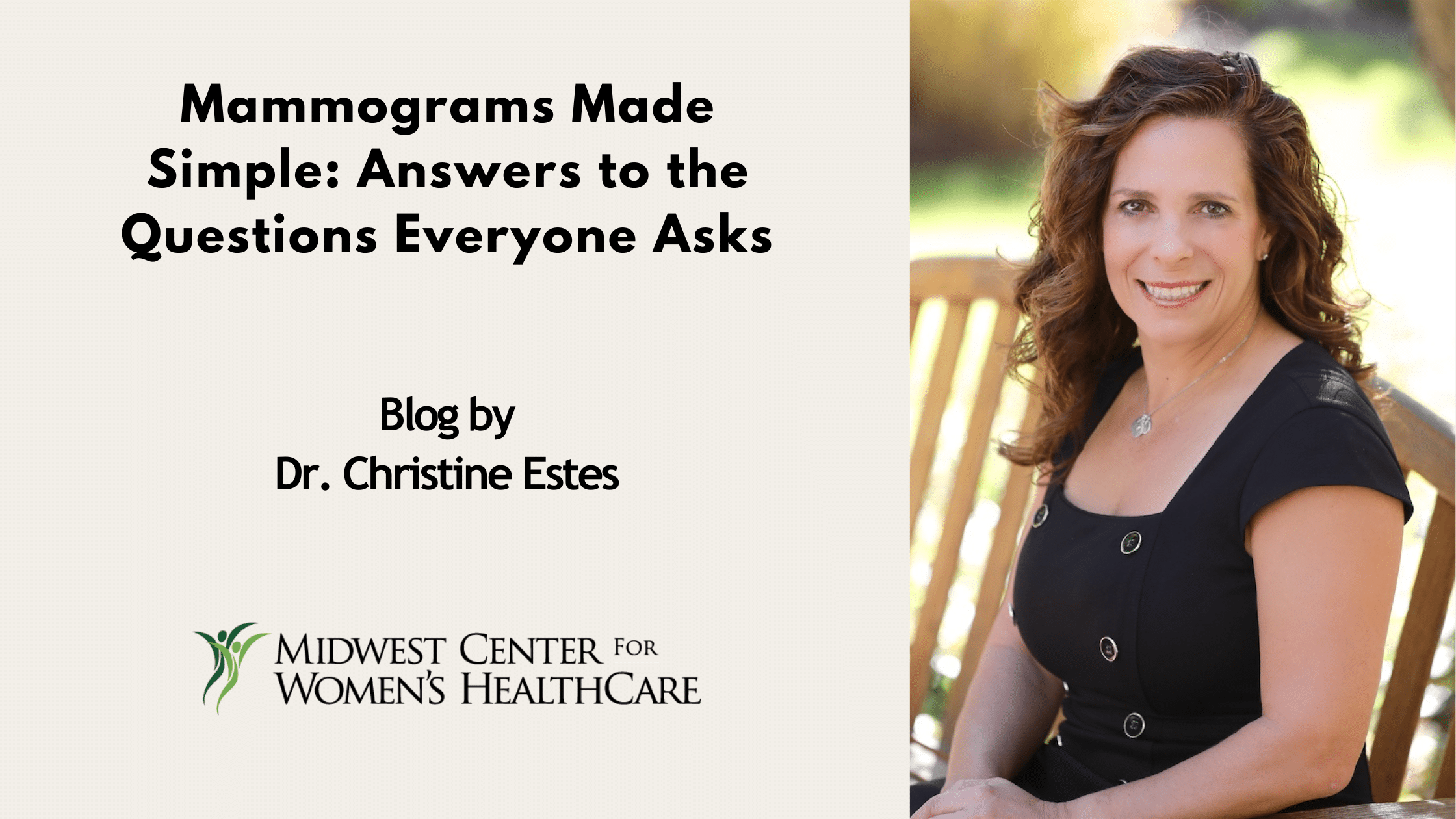Advice from the Infertile OB/GYN: When to seek care for Infertility
Fertility concerns are commonly discussed during Ob/Gyn visits. Statistics show that 1 in 8 couples are faced with the issue of infertility. Most often Ob/Gyn physicians discuss fertility concerns with women who choose to pursue a career that delays their plans for childbearing until late in their 20’s or even their 30s. Many women today are delaying childbearing. In fact, in 1970, the average age at which a woman bore her first child was 21.4yrs old. In the United States, the average age has increased to 26 in the year 2018, and to 30.3 years for women with a college degree. So, the question is, when should a woman seek care from their Ob/Gyn if they are concerned that they are not getting pregnant?

It is certainly true that more and more women are waiting to have children. We have seen a trend in our own practices, but this is not something unique to the Chicagoland area. In general, this is a rising trend that has been observed over the last few decades and particularly in high income countries like the United States.
In fact, in the past 30 years there has been a 36% increase in first births among women ages 35-39. Why is this happening? Well, in many cases people are waiting to have children due to financial concerns and a desire to focus on career opportunities. Some of this increased ability to delay pregnancy is also made possible by improved fertility options.
When should I consult an Ob/Gyn about infertility?
First, one needs to know the definition of infertility or as some prefer to call it, subfertility. The current definition is an inability to conceive or sustain a pregnancy after 12 months in a woman less than 35 years old or an inability to conceive or sustain a pregnancy after 6 months in a woman 35 years or older. This means that a couple has been having intercourse around the time of ovulation, each month, without the use of hormonal birth control (pills, patch, ring, IUD, implants) or barrier methods (male condoms, female condoms, sponges, diaphragms, spermicides, etc.) and has not become pregnant. Once the time period of 6 months or 12 months (based on your age) has elapsed without a pregnancy or a live birth, it is time to come see your Ob/Gyn for guidance and an infertility evaluation.
What should I expect during an infertility evaluation?
First, the Ob/Gyn physician will review the patient and her partner’s medical history to ensure there are no factors that may be contributing to their subfertility. If there is nothing noted in the history that is considered significant, both female and male testing is necessary. True, it is often assumed that fertility issues are due to the female partner (egg factor) but in almost equal amounts, the male partner (sperm factor) is to blame. Then, your Ob/Gyn will want to run some tests.
Your Ob/Gyn will want to test your hormone levels on a certain day of your menstrual cycle to make sure your ovaries are functioning properly and that the egg quality is normal. Remember, you have the most eggs you will ever have when you are still an embryo in your mother’s womb, and they continue to age from that point forward.
Your Ob/Gyn will also likely perform a procedure called an “HSG” or hysterosalpingogram to check that your uterine cavity or “womb” is normally shaped. Your Ob/Gyn will also want to make certain there are no fibroids or polyps (noncancerous lesions) that may be hindering the embryo (baby) from implanting in the uterus. Lastly, the fallopian tubes are evaluated to ensure that they are open, or at least one of them is open. Remember that fertilization occurs in the fallopian tube and then the embryo travels to the uterus where it implants and continues to grow. So, if a woman’s tubes are blocked, the sperm cannot reach the egg to fertilize it and lead to pregnancy.
Finally, the male partner will need to provide a semen analysis (test to evaluate the sperm) so make sure there are enough sperm, that they are mobile, and that they are formed normally.
What are the next steps in trying to get pregnant?
Once these three tests are completed, if there is no cause identified, your Ob/Gyn may choose to discuss medications with you that can be used to increase your chances of pregnancy. Depending on your Ob/Gyn’s comfort level, they may consider medications that will induce ovulation (clomiphene citrate or letrozole) with timed intercourse (having sex when a woman knows she is ovulating).
If that does not result in a successful pregnancy, your Ob/Gyn will likely refer you to a qualified Reproductive Endocrine and Infertility (REI) professional in the area who can assist you further with techniques like intrauterine insemination/“IUI “(where sperm is concentrated in a fertility lab after a male partner provides a sample and it is injected directly into the uterus on the day when the female partner is ovulating) or even in vitro fertilization/“IVF” (where eggs are harvested surgically from a woman’s ovaries under anesthesia and fertilized with the male partner’s sperm to form an embryo and then allowed to grow for up to 5 days in the lab and then placed back into a women’s uterus).
Certainly, these techniques can increase a couple’s chances of conceiving but also may or may not be covered by insurance and can be quite expensive. It is recommended that you call your insurance provider and inquire about fertility coverage rates before making an appointment with an REI provider.
Key Points
Most couples will conceive on their own within the 12 months of timed intercourse if they are younger than 35 years old. That number has been quoted to be as high as 80-90%. However, as women age, and therefore the eggs in the ovaries age, there is a greater chance for aneuploidy (abnormal chromosomes/genetics) in women over the age of 35. That is why the interval before seeking help from your Ob/Gyn is only 6 months as opposed to 12 months. The good news is that science has progressed immensely, and now we have many techniques that can assist women and their partners in becoming parents!
Of note, for members of the LGBTQ community, it is important that you speak with your Ob/Gyn regarding family planning as soon as you decide to start a family as some of these techniques may be recommended immediately, including seeking the help of an REI provider to help with conception.
About The Author
JENESS BARTHEL, M.D., F.A.C.O.G.
Jeness Barthel, M.D., F.A.C.O.G. is a Board Certified OB-GYN that has a special interest in infertility given both her children were conceived with IVF. She is highly sought after for her expertise in obstetrics and has helped hundreds of women fulfill their pregnancy dreams and grow their families.
“I, myself, required IVF to conceive my two daughters so I have experienced many of the highs and lows that come with infertility. Although very difficult at times, I do feel that it has made me a better physician as I can not only empathize with my patients, but I can also show them that science can truly make anything possible,” writes Dr. Barthel.
Dr. Barthel graduated from the University of Illinois at Chicago Medical School and completed her residency at the University of Michigan in Ann Arbor where she was selected to serve as Chief Administrative Resident. She is board-certified in Obstetrics and Gynecology and certified to perform daVinci Robotic Surgery. Dr. Barthel is a Fellow of the American Congress of Obstetricians and Gynecologists and a member of the Illinois State Medical Society. She is also a member of the American Association of Gynecologic-Laparoscopists, an organization focused on elevating the quality and safety of women’s health care and advancing minimally invasive gynecology worldwide.
Outside the office, Dr. Barthel enjoys running marathons, working out at Orangetheory Fitness, riding her Peloton bike, and spending time with her family.
Dr. Barthel sees patients in our Algonquin, Elgin, and South Elgin offices and delivers babies and performs procedures at Advocate Sherman Hospital in Elgin.
Dr. Barthel is currently accepting new patients by calling 847.741.7990 or requesting an appointment here. Learn more about Dr. Barthel here.





